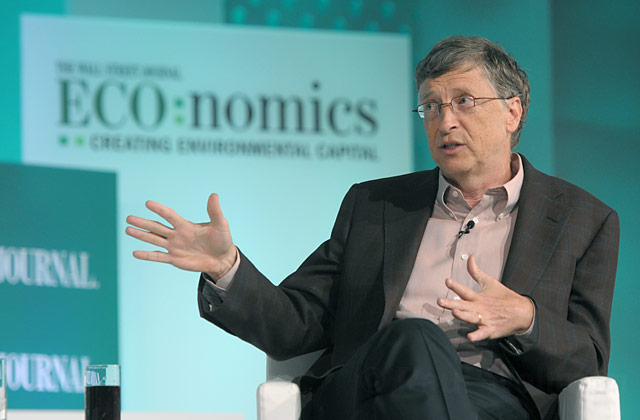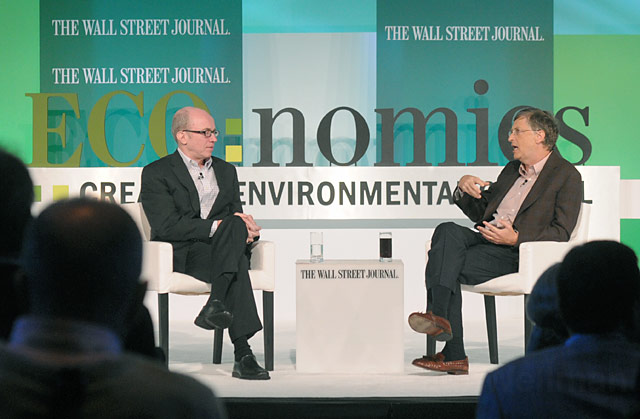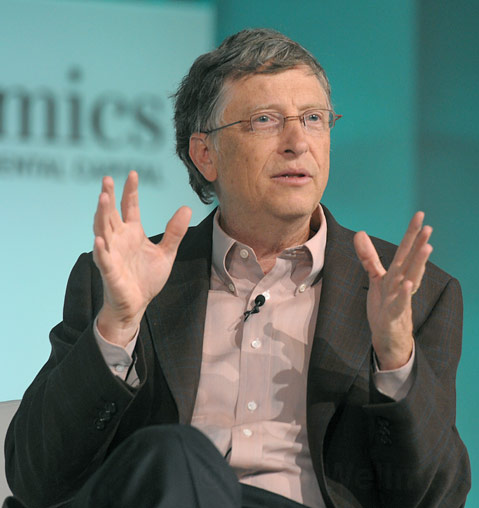
Currently gathered at the Bacara Resort in Goleta are some of the biggest brains in business and environmentalism attending The Wall Street Journal’s annual ECO:nomics conference. Headlining the event last night was the richest — if not the biggest — brain of all. Bill Gates, most famous for founding Microsoft and presiding over a foundation focused on eliminating poverty abroad and improving education stateside, wore his venture capitalist hat when addressing the conference goers.
The conference program proclaimed, “Tech titan Bill Gates says the world needs to achieve zero carbon emissions by 2050 to avoid planetary catastrophe and offers a vision of how to get there.” That description seemed a bit pie-in-the-sky for a business shindig where quantitative analysis tends to dominate over wishful thinking. And it turned out that it was. Gates did not fulfill either of the program’s promises.

Gates said it would take a miracle advancement in the technologies of natural gas carbon capture, nuclear energy, solar power, wind power, or biofuels to get us carbon free or even at 50 percent non-carbon-emitting energy by 2050. He did say he believes that by 2060, though, we could start implementing a long-term carbon-free infrastructure, taking advantage of the moment to promote one of the ventures he is backing — Terrapower, which has designed a mechanism for converting depleted uranium into fuel, creating less waste than current nuclear technologies. Acknowledging that nuclear power is not exactly popular right now, Gates joked that there have only been three nuclear disasters in the entire century.
Meaningful reductions in carbon emissions, Gates argued, would also necessitate smarter policy on the part of the government. He said that the inability to put in place a carbon tax, or at least a future carbon tax, was the “single greatest failure” of the U.S. policymakers. When his interlocutor, Alan Murray, deputy managing editor of the Wall Street Journal, asked Gates the odds of Congress ever passing a carbon tax, Gates replied, “It depends on the IQ of the American people.”

While he held out the possibility of intelligence on the part of the masses, he said that the current rate of investment in “intermittent” energy technologies—wind and solar, which do not produce energy continuously—is foolish. Demand for those forms of renewable energy would be best bolstered by investments in transmission and storage technologies that would render them much more convenient to consumers.



